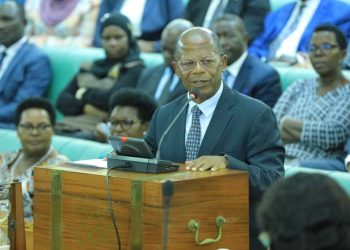More men in urban areas are reporting physical violence, compared to women, a new survey reveals as the Government embarks on a new fight against gender-based violence
About 58% of men reported physical violence by their partners in 2016, significantly higher than the 49% of women who reported the same, the report says. It shows that prevalence of physical violence has gone up for both men and women, partly resulting from limited economic opportunities and alcoholism.
Prepared by the gender ministry and the Uganda Bureau of Statistics (UBOS), the survey is partially based on analysis of two nationwide household surveys. In 2011, the Uganda Demographic and Health Survey reported that half of the male respondents (50%) in urban areas had reported being victims of physical violence, compared to 47% of women.
Physical violence is described to indicate kicking, dragging or beating, trying to chock or burning on purpose, threatening or attacking a person with a knife or gun or any other weapon.
However, although men in urban areas are shown to be crying out over beatings, the story is different in rural areas, where most of the women are victims. The survey shows that overall, more women bear the brunt of gender-based violence, compared to men and have unequal access to employment and ownership of assets
The report shows a link between domestic violence and education levels. Women with no education reported the highest cases of physical violence, but the reverse was true for men. The authors of the report warn that all the forms of gender based violence, if left untamed, will significantly affect national development, since victims suffer long-term trauma.
“As a result, consequences of sexual and physical gender-based violence are devastating. For example, survivors often experience life-long emotional distress, mental health problems, poor reproductive health and risk of acquiring HIV. In extreme cases, it leads to death,” the report warns.
Uganda has made strides in improving gender equity and equality through policies, programs and laws, especially regarding asset ownership and employment. The authors recommend increased engagement with men and boys, to challenge common beliefs and stereotypes that encourage gender based violence. They also call for operationalization of laws that guarantee property rights for women and increasing awareness about domestic violence, asset ownership and employment.
At the launch of the report, the gender minister, Janat Mukwaya, said the Government would come up with programs to help male victims of abuse. She advised men and women to balance family and careers to guarantee better living. She also advised women to space their children, if they want to grow in their careers and avoid abuse. Dr Madina Goloba, a senior researcher at the Economic Policy Research Centre, said many men are reporting abuse by their spouses as a result of increase in awareness about the vice.
“Many organizations have done a lot of sensitization about gender based violence and men no-longer feel like if they report such cases, they will lose their manhood,” Goloba said.
She advised both men and women to live productive lives, so that their partners will respect them and have little space to mistreat them.































































